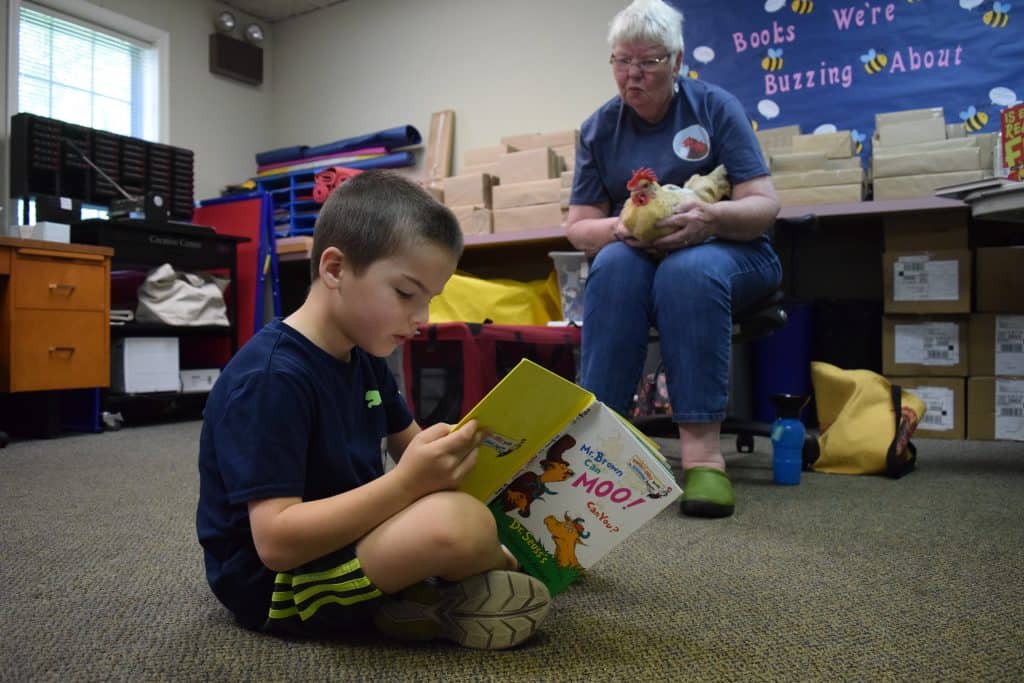

Pinelands Branch Library hosted its latest children’s reading program with a chicken.
Sadie, a certified therapy chicken, replaced a therapy dog for the normally scheduled Paws to Read program, switching the name to Chicken Paws to Read, on Wednesday, April 24.
It’s not the first time the library hosted a chicken for this program. But it is a first for Sadie.
Gwenne “The Chicken Lady” Baile usually has her other certified therapy chicken, Blossom, attend the program. But with Baile being a certified therapy handler, she has been taught how to evaluate if the animal would be a good fit to have around children.
This one (Sadie), was like this from the day I brought her home at 14 weeks old,” said Baile, pointing to Sadie as she sat calmly on her owner’s lap.
Even when Baile first brought her home into a new environment, she never caused much commotion. The only thing that got her in trouble was her pecking, especially on Baile’s glasses, but that habit was quickly trained out of her. Once she was comfortable enough around Baile, it was obvious that she could have other people around.
And the same goes for the young readers who attend the program. Not only does it potentially enhance a child’s communication with other individuals, but it also increases literacy skills.
The library considers itself to be a place for children to become interested in reading and to provide a space to practice those skills.
“It’s that comfort level that they can identify with, that chickens are fun and different. Once they get comfortable reading to a pet like that they can get comfortable in reading in front of people and then get comfortable in front of anybody,” said Lauren James, a youth services librarian at the library.
According to the library, the chance to read privately, in a comfortable setting to an animal can benefit children who may be shy during communication or are behind on reading skills.
Studies have shown that the act of reading to animals can potentially increase these skills and confidence in children. According to researchers at Tufts Institute for Human-Animal Interaction at Tufts University, young students who read to animals demonstrated improved attitudes about reading.
“One of the most important aspects of facilitating reading skill development is motivating a child to engage in reading,” said the study’s senior author Lisa Freeman, director of Tufts Institute for Human-Animal Interaction, on the university’s website.
The library’s efforts to engage young readers are varied throughout the week with unique activities, which at the very least, gets the children into the library. Among them is “Story Time with Mr. Rick,” where youngsters are invited to hear stories and songs and develop social skills.
“We think it’s important to offer these different programs because it helps associate fun experiences with building literacy, allowing children to love learning and reading. Story times also allow for socialization since children are also interacting with their peers, talking about what they think of the story being read,” said James.









